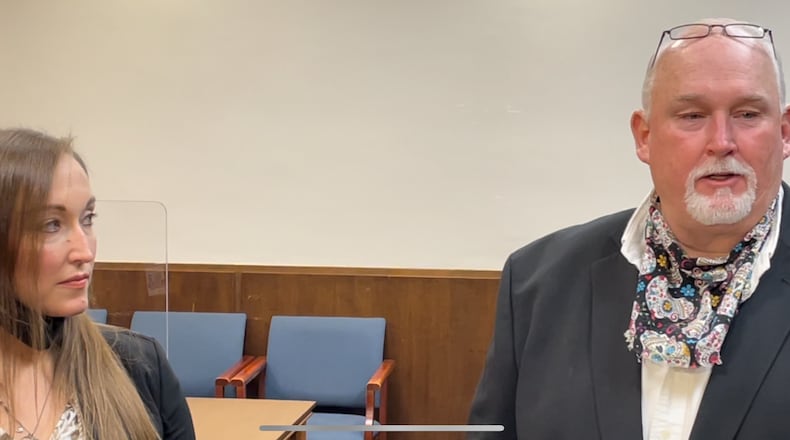However, in 2008, he filed a motion for a new trial arguing that there was new evidence including the identification of an alternate suspect and he argued that there were police reports that possibly eliminated him as a suspect which were never turned over to the defense. Gillispie’s convictions were vacated and a new trial was granted. He was released from prison and eventually a judge issued a decision dismissing the case with prejudice.
He was declared a “wrongfully imprisoned person,” last year by Montgomery County Common Pleas Judge Susan Solle.
Gillispie is suing a former Miami Twp. police officer in federal court who was the detective in his wrongful conviction case.
On Monday, Gillispie’s attorneys said former detective Matthew Moore targeted Gillispie even though he didn’t match the description of the attacker, his voice was different and Gillispie had an alibi. They said Gillispie was put on the police’s radar by a former employer who he didn’t get along with but was eliminated as a suspect by other detectives before Moore picked up the cases after it went cold.
“He mistakenly and improperly thought Dean was guilty,” Gillispie’s attorney said. " We are not saying he is a monster, but he is liable.”
Meanwhile, Moore’s attorneys said their client inherited a case that had no evidence and he had to rely on witness accounts to make a case. They said the victims of the case identified Gillispie in photo lineups and Moore used the resources available to him to create a fair lineup -- even changing the position of Gillispie’s image when showing it to different victims.
Moore has never seen a report that eliminated Gillispie as a suspect and those who made the report should have spoken up sooner if it ever existed, the attorney said.
“At the end of the day, the evidence is not going to carry the fact that Mr. Moore deprived Mr. Gillispie of a fair trial,” Moore’s attorney said.
About the Author

